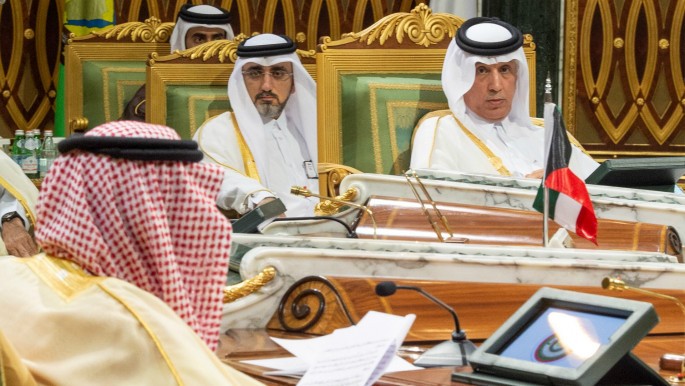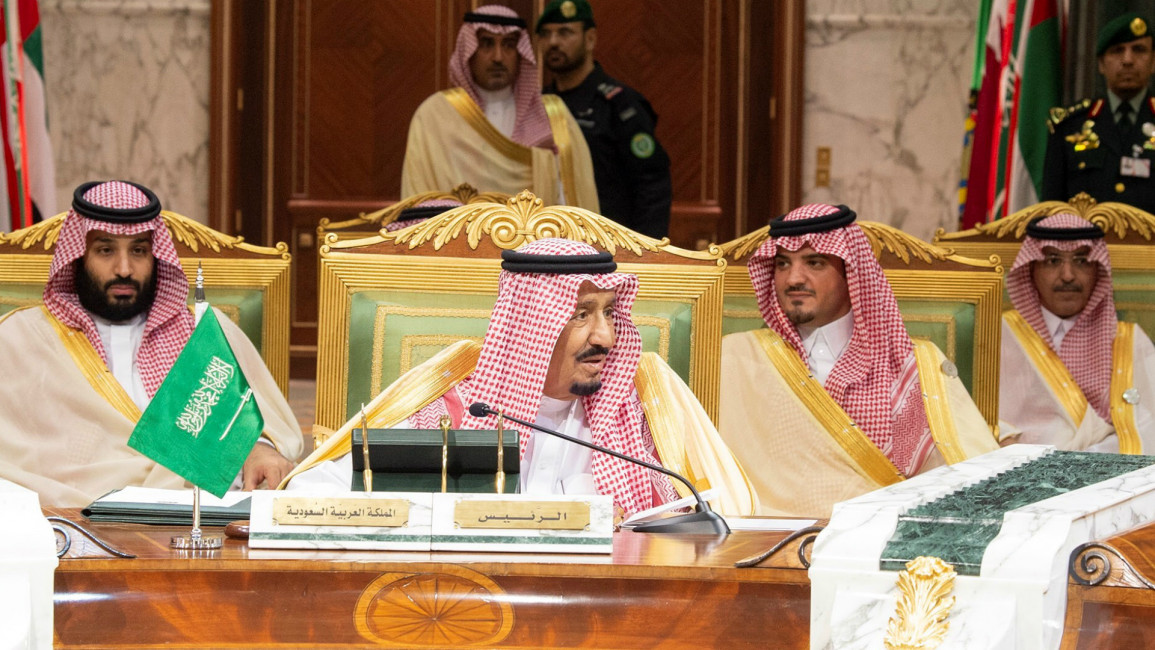Pro-Saudi bloc sore as Qatar emir shuns Riyadh GCC meeting
Riyadh is hosting the annual gathering as crises rumble on over the 18-month-old blockade of Doha.
The regional powerhouse had invited Qatari Emir Sheikh Tamim bin Hamad al-Thani to attend the six-nation Gulf Cooperation Council (GCC) talks, but the foreign ministry in Doha said he would not go.
Instead Qatar was represented by the minister of state for foreign affairs, Sultan al-Muraikhi.
Despite mediation efforts by Kuwait, the gap remains between Qatar and others in the six-nation GCC, an alliance formed in 1981 in part to offer a counter-balance to Iran.
Saudi King Salman greeted GCC leaders on Sunday as they descended down a golden escalator at a Riyadh air base and never mentioned Qatar in his remarks to the summit.
The king instead spoke about the need to counter Iran, as well as the kingdom's ongoing war in Yemen.
"Extremist and terrorist powers continue to threaten our security in the Gulf and in the Arab world," the king said.
"The Iranian regime is continuing its hostile policies and continues to intervene in other nations' internal affairs."
Iran's Foreign Minister Mohammed Javad Zarif later tweeted that the "region has had far too many strongmen who have only caused war and misery".
"What we need is a stronger REGION rather than strongmen," Zarif wrote, apparently in response to the GCC meeting.
 |
| Qatar's minister of state for foreign affairs Al-Muraikhi offered no comments during the open session of the GCC meeting [Anadolu] |
One of the region's so-called strongmen was King Salman's son, Crown Prince Mohammed bin Salman, who sat prominently behind his father during the summit. His high-profile appearance came despite him being linked to the slaying and dismembering of Washington Post columnist Jamal Khashoggi at the hands of Saudi agents in October in Istanbul.
Kuwait's ruler, the 89-year-old Sheikh Sabah al-Ahmad al-Sabah, did discuss Qatar, warning of internal divisions threatening the GCC and urging its members to stop a "media war".
"The most serious challenge we are facing is the Gulf dispute and its continuation which is now causing a serious threat to our unity and affecting our citizens' interests," Sheikh Sabah said.
"This has also caused the rest of the world to look at us as an entity with cracks forming in its unity, and that we can no longer guarantee the interests of other nations as we could when our unity was stronger."
Qatar's minister of state for foreign affairs al-Muraikhi offered no comments during the open session of the GCC meeting.
Qatar's emir had attended last year's GCC meeting in Kuwait, where nations boycotting Qatar sent lower-level representatives.
Bahrain's Foreign Minister Khalid al-Khalifa tweeted that Sheikh Tamim should have "been there at the summit".
In June 2017, Bahrain, Egypt, Saudi Arabia and the UAE cut diplomatic ties to Qatar.
They also launched a blockade of the country, stopping Qatar Airways flights from using their airspace, closing the country's sole land border with Saudi Arabia and blocking its ships from using their ports.
Qatar's natural gas reserves have made the Arabian Peninsula country fantastically wealthy, sparking its successful bid for the 2022 FIFA World Cup.
Qatar also hosts the Al-Udeid Air Base, the home of the forward headquarters of the US military's Central Command and about 10,000 US troops.



![South Sudan famine [AFP] South Sudan famine [AFP]](/sites/default/files/styles/image_330x185/public/media/images/5FED4B35-6177-43AD-844A-5C63373FCF89.jpg?h=d1cb525d&itok=TC12KIPv)